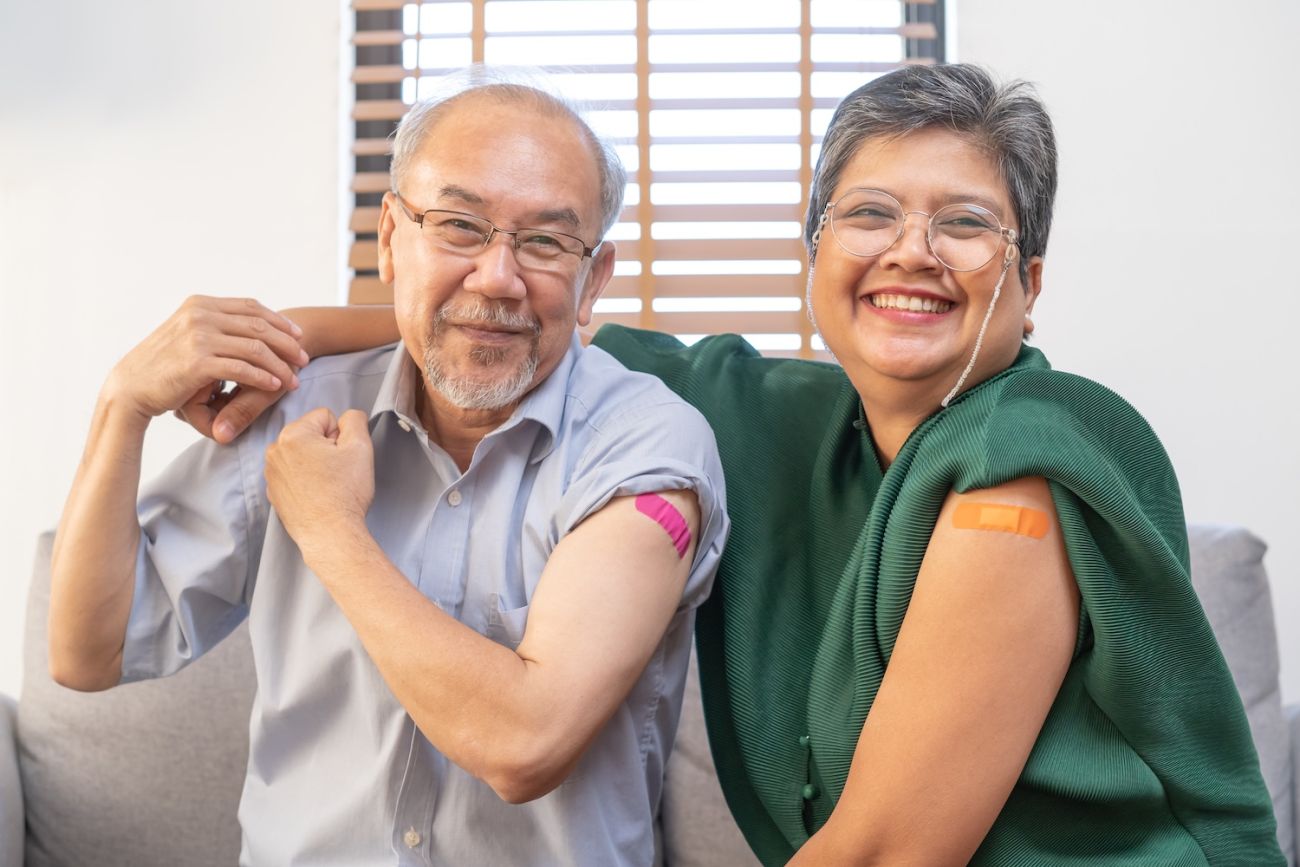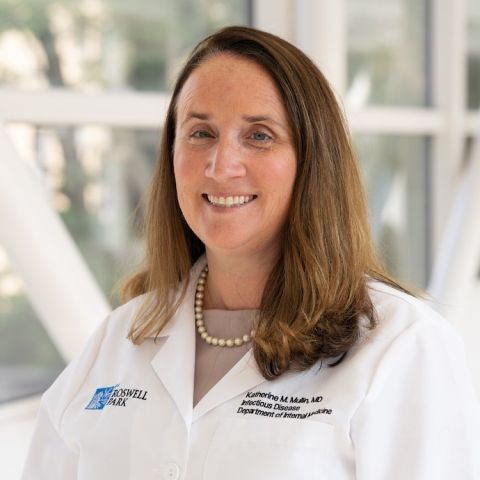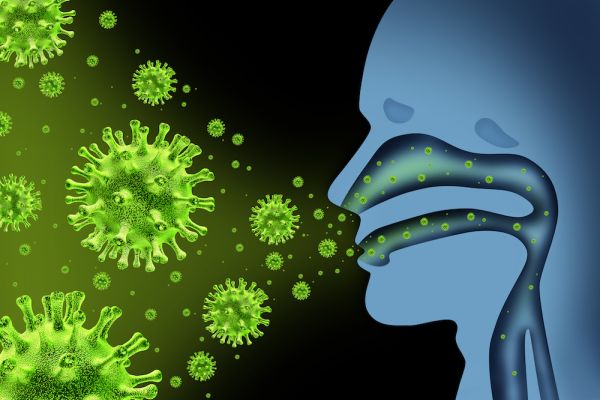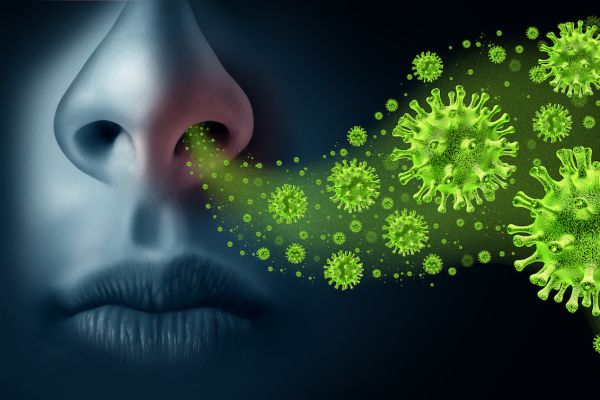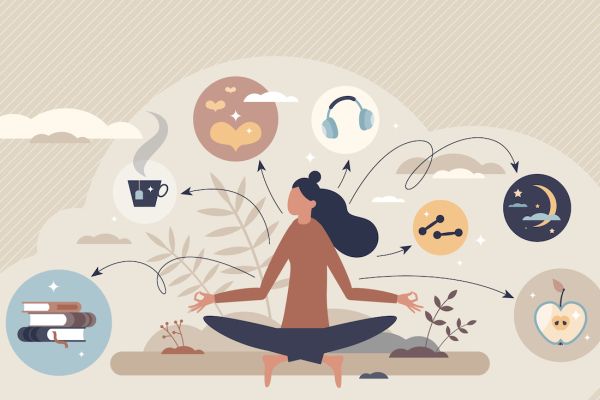A risk mitigation strategy to celebrate safely together
For many people, the time from Thanksgiving to New Year’s Day is for gathering to celebrate with family and friends close to home and far away.
But for people experiencing cancer treatment – and the family members, caregivers and friends who support them – the anticipation of togetherness is often dampened by a fear of spreading viruses that can compromise survivorship.
“There are big holiday gatherings coming up, and we want all our family members to be able to celebrate together. COVID, influenza, respiratory syncytial virus (RSV) and other respiratory viruses continue to pose significant risks for our oncology patients. They can get a much more severe case than the rest of the population,” reminds Katherine Mullin, MD, Director of Infection Control at Roswell Park Comprehensive Cancer Center.
A different perspective on cocooning
One definition of the word “cocoon” is “to envelop or surround in a protective or comforting way.” Roswell Park is encouraging families, caregivers and friends this holiday season to do just that by adopting the “cocooning” strategy used for newborns to enjoy holiday gatherings that are safe for vulnerable family members.
Cocooning became prominent in 2006 as a public policy practice to prevent pertussis (whooping cough) in newborns. The strategy involves immunizing parents, grandparents, family members, caregivers and other people who are regularly in close contact with the infant to protect the baby from influenza as well as whooping cough. Even though the preventative strategy traditionally focuses on new babies, it can also apply to any vulnerable population, advises Dr. Mullin.
“Cancer patients can be seen in a lot of ways like a newborn, right? They don’t have a lot of their own immunity for various reasons, either because the cancer has basically caused their immune system to be dysfunctional, or because we’re giving them medications to try and fight the cancer that affects their immunity,” she says. By ensuring the ring of people closest to vulnerable older family members are immunized, the chance of infection getting inside that cocoon is much smaller, so limits the ability for viruses like influenza, RSV and COVID to be transmitted.
“If we can keep this physical barrier to transmission around our vulnerable patients, they are more likely to get through their chemotherapy without any complications. It also means they are less likely to get hospitalized with prolonged cases of the virus itself and less likely to get secondary bacterial infections, like pneumonia, after acquiring these viruses,” Dr. Mullin explains.
“Having close friends and family members who are vaccinated against some of the major respiratory viruses doesn’t mean that the patients are no longer vulnerable to the viruses, but it’s a way to add an extra layer of protection around them.”
She acknowledges the current reluctance regarding immunizations but maintains that cocooning is the best way to protect loved ones whose immune system has been compromised by cancer treatment, or who are otherwise vulnerable, during the upcoming holiday gatherings.
Stay healthy this winter
Nutrition can play an important role in your overall health - our nutritionists can help you make the best food choices to optimize your well-being!
Cocooning is risk mitigation to enjoy the holiday season and beyond
Many cancer patients may not be able to be vaccinated because of their compromised immune system; other vulnerable family members, especially seniors, may have chronic health conditions that mean a poor or non-response to immunization. However, vaccines do not completely eliminate the risk of contracting influenza, COVID or RSV viruses.
“It is 100% true that you can get vaccinated and still get any of these illnesses, which typically circulate at higher rates during the winter season. But vaccinations for these viruses can and do limit severity,” Dr. Mullin says.
However, vaccination rates have dropped, she adds, due in part to misinformation and public fatigue surrounding the subject.
“There is a lot of discussion on vaccination being an individual choice – which is true. But it’s an individual choice that can have an impact on the people you love,” she says. “Getting vaccinated and adopting the cocooning strategy is a tangible way to protect the vulnerable older people in your life so they can have the healthiest, fullest life possible.”
